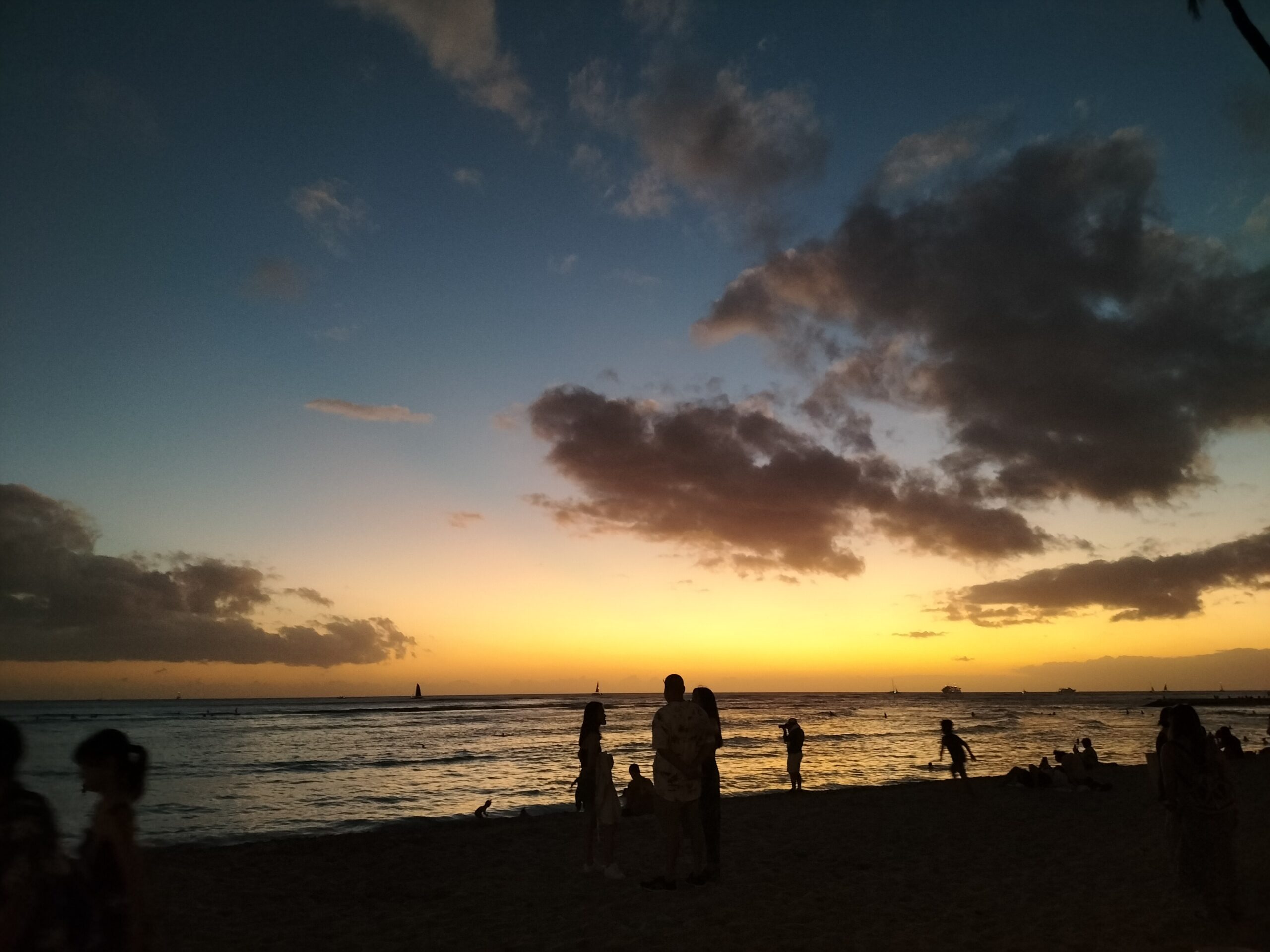In early November, members and affiliated researchers of the Research Centre for Deep History (RCDH ) travelled to Honolulu, Hawai’i for the Society for Social Studies of Science Annual Conference. The theme for the 2024 meeting was Sea, Sky and Land: Engaging in Solidarity in Endangered Ecologies.
A three-panel symposium on ‘Deep History, Temporality and Indigenous Sovereignty’ was convened by RCDH Director Ann McGrath and Senior Advisor Jackie Huggins. The panels featured papers from Anna Clark, Beth Marsden, Bhaveeka Madagammana, Ann McGrath, Jackie Huggins, Bronwen Neil, Chris Urwin and Lynette Russell, Grace Fletcher, Laura Rademaker and Joakin Goldhahn, Martin Porr, Mary Blight and Neil Brougham.
Showcasing diverse but interconnected research, presenters spoke to themes spanning methodological and ethical approaches to deep history, time and temporality, and reflected on the foundational concept of Indigenous sovereignty. The recent outcome of the Voice to parliament referendum lent an urgency to the lively discussions that followed each panel.



Three keynotes from Native Hawaiian scholars and activists were a highlight of the program. First, Professor Kamanamaikalani Beamer, spoke about the centrality of water justice and sovereignty to Native Hawaiian resistance to US militarisation, including the role of the US military in the contamination of water at Red Hill. The second, a plenary on, ‘Aloha ‘Āina: Hawaiian Knowledge Today,’ explored the concept of aloha āina: taking care of land through conversation Presenters included Manulani Aluli Meyer, theorist of Indigenous epistemology, Mehana Blaich Vaughan, researcher of Indigenous natural resources management, and Malia Akutagawa, whose work has focused on protecting Indigenous resource rights. Their discussion threaded the historical through the contemporary using the framework of ‘āina’ —often translated as ‘land’ but more accurately meaning ‘that which feeds’—as that which underpins ethical relationships between humans, knowledge frameworks, and land. Aluli and Blaich encouraged seeking out the knowledge of place by engaging with place names and other forms of Indigenous knowledges, to create a shared purpose for Indigenous and non-Indigenous peoples to care for the land and preserve the knowledges of it. Presenters spoke about the destructive forces of colonialism and militarism on Hawai’i whilst asserting that out of this destruction comes creation. This was a poignant reflection in light of Australia’s recent referendum sparked by Jackie Huggins.

The third keynote, ‘On Fantasies, Broken Things and the redistribution of epistemic authority’, also examined contests over resources and environmental and epistemic justice. Bruce Ka`imi Watson, Aurora Kagawa-Viviani, and Kyle Kahihiro explored the intersections of knowledge, ignorance, colonialism, and militarism including discussion of the devastating recent wildfires in Maui, an event inextricably connected to the historical and contemporary issues raised across all three panels. Pointing to the devastating impacts of the drought and winds that culminated in the Maui fires, Watson, Kajihiro and Kagawa-Viviani contrasted the destruction of the fires with sweeping images of endless infinity pools asking “whose fantasies” do the uses of water serve?
All speakers also reminded conference delegates of the continuity of Hawai’in sovereignty and the impact of occupation, militarisation and over-tourism. We learned that the tourist and defence industries have a disproportionate negative impact on Hawai’in people and natural resources, while economic benefits are unevenly distributed. Each of the keynote addresses centred Indigenous epistemologies and ontologies, consistently returning to Indigenous water and food sovereignty, and threading through the historical contexts underpinning the contemporary situation in Hawaii.


What we learned through these keynotes underscored our experiences in Hawai’I beyond the convention centre and conference program. On Thursday, Jackie, Grace, Anna, Ann and Beth visited the Bishop Museum. ANU scholar Katerina Teaiwa’s exhibition, Project Banaba, was on display, comprising historical archives and multimedia works illustrating the networks linking the extraction of phosphate from Banaba to global agricultural interests. The museum houses the world’s largest collection of Hawaiian and Pacific artefacts including an extensive display of everyday farming and fishing tools, of ceremonial dress, items owned by the Hawaiian royal families, as well as displays of the Hawaiian Renaissance Movement in the 1970s.


On the final day of the conference, Anna, Ann, Grace and Beth participated in a half-day session at the Hamakua Marsh, where we engaged in revegetation work to support the regeneration of the wetlands. A tour of the marsh showed the impact of the drought Hawaii is currently experiencing, yet we were fortunate enough to see a number of waterbirds at the site. This was part of the 4S conference program’s ‘Making Doing Session’, in which research was enacted or tested, or theories applied in experiential ways.
By Beth Marsden and Grace Fletcher







